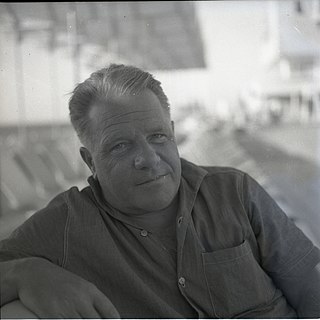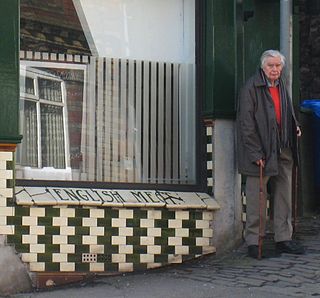A Quote by George Berkeley
It is a mistake, to think the same thing affects both sight and touch. If the same angle or square, which is the object of touch,be also the object of vision, what should hinder the blind man, at first sight, from knowing it?
Related Quotes
In the one instance, the dreamerloses sight of this object in a wilderness of deductions and suggestionsuntilhe finds the incitamentum, or first cause of his musings,... forgotten. In my case, the primary object was invariably frivolous, although assuming, through the medium of my distempered vision, a refracted and unreal importance.
The loved object is simply one that has shared an experience at the same moment of time, narcissistically; and the desire to be near the beloved object is at first not due to the idea of possessing it, but simply to let the two experiences compare themselves, like reflections in different mirrors. All this may precede the first look, kiss, or touch; precede ambition, pride, or envy; precede the first declarations which mark the turning point—for from here love degenerates into habit, possession, and back to loneliness.
The seeing of objects involves many sources of information beyond those meeting the eye when we look at an object. It generally involves knowledge of the object derived from previous experience, and this experience is not limited to vision but may include the other senses: touch, taste, smell, hearing, and perhaps also temperature or pain.
The recovery of spiritual sight and the healing of physical blindness have much in common. Some of those whose bodily eyes were blind received their sight at once, like the man who heard and immediately saw and was healed. Others recovered their sight gradually as in the case of the man, who, before he was completely cured, said, “I see men as trees, walking”. It is the same with those whose spiritual eyes were healed.
Men look at women. Women watch themselves being looked at. This determines not only most relations between men and women but also the relation of women to themselves. The surveyor of woman in herself is male: the surveyed female. Thus she turns herself into an object - and most particularly an object of vision: a sight.
Dreams, memories, the sacred--they are all alike in that they are beyond our grasp. Once we are even marginally separated from what we can touch, the object is sanctified; it acquires the beauty of the unattainable, the quality of the miraculous. Everything, really, has this quality of sacredness, but we can desecrate it at a touch. How strange man is! His touch defiles and yet he contains the source of miracles.
All changes in space which we see, hear, smell or taste are literally tactile impressions. All our senses are variations of our unique sense of touch. Two approaching objects touch one another when they finally meet without a noticeable space between them. ... This is what happens in any condensing matter in which the outer aspects move towards a centre... Each single part of matter approaches its neighboring part until the two collide, causing an impact or a pressure. It is space, which appears and disappears between and round object and in the movements of the particles of the object.
To be naked is to be oneself. To be nude is to be seen naked by others and yet not recognized for oneself. A naked body has to be seen as an object in order to become a nude. (The sight of it as an object stimulates the use of it as an object.) Nakedness reveals itself. Nudity is placed on display. To be naked is to be without disguises.
Good and Evil are names that signify our appetites and aversions, which in different tempers, customs, and doctrines of men, are different: And diverse men differ not only in their judgment, on the senses of what is pleasant and unpleasant to the taste, smell, hearing, touch, and sight, but also of what is conformable, or disagreeable to Reason, in the actions of the common life. Nay, the same man, in diverse times, differs from himself, and one time praiseth, that is, calleth Good, what another time he dispraiseth, and calleth Evil.








































